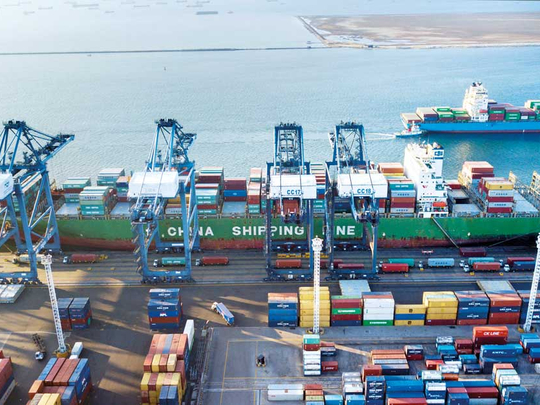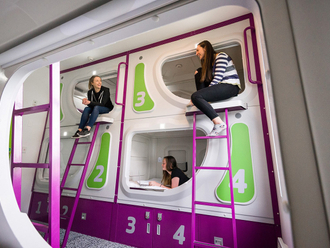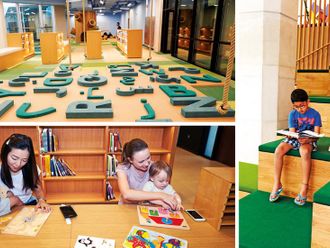
When Indonesia’s economy rose by 5.3 per cent over the second quarter of this year, it exceeded expectations and drew praise from pundits for its macroeconomic stability and resilience against global trade wars and rising US interest rates.
Morgan Stanley said South East Asia’s largest economy, which saw strong domestic and external demand, could expand by 5.3 per cent this year, and 5.4 per cent over 2019. “We expect sustained export momentum to support capacity utilisation, which should in turn increase capital expenditure and employment opportunities,” economists Deyi Tan and Zac Su wrote in a recent research note.
Sunrise sectors
Long bound by reliance on natural resources, Indonesia’s focus on other industries is a sound strategy. A new spotlight on the creative industries, for instance, is expected to improve the pace of GDP growth. Films, fashion, entertainment, handicrafts and packaged foods may sound like a motley mix, but as Triawan Munaf, head of the Indonesian Agency for Creative Economy, says, these new sectors accounted for about 7.4 per cent of Indonesia’s GDP last year and plans are afoot to raise it to 9 per cent by 2020.
Established in 2015, the agency has been attracting foreign investors to these fields, among them 21st Century Fox and South Korea’s Lotte Cinema. “The focus on the creative economy is really paying off,” Munaf said in a recent interview.
“Within three years of opening film production, exhibition and distribution to foreign investors, movie screens in Indonesia jumped 50 per cent, while ticket sales soared to 42.7 million last year from 16 million in 2015.”
Realty and retail
While Indonesia’s central bank is driving up interest rates to defend the fragile currency, it’s also counting on a revival of the realty sector. After a boom in the luxury market five years ago, property has been slow and sluggish, but this is expected to change when the central bank’s new policies come into play this month — a scrapping of the 15 per cent minimum down payment on mortgages, and relaxed rules on loan disbursements. Governor Perry Warjiyo has repeatedly said that property will have a multiplier effect on other sectors.
Last year, when the UAE’s LuLu Group opened its second hypermarket in Indonesia, it made a pledge to boost both realty and retail sectors with a planned investment of $500 million (Dh1.84 billion) over the next three years. LuLu is also investing in contract farming to increase its procurement from Indonesia.
“With an initial investment of $300 million in the first phase, we plan to open ten hypermarket and department stores and a central logistics and warehousing facility in Jakarta,” says LuLu Chairman Yusufali M.A. “These projects are likely to generate more than 5,000 jobs for Indonesians.”
Logistics and life sciences
Indonesia’s logistics industry is expected to see continuing double-digit growth this year, led by e-commerce demand and infrastructure investments. On the Indonesian Logistics Association portal, chairman Zaldy Ilham Masita predicts growth of more than 10 per cent, subsequent to overcoming a set of challenges.
“E-commerce in Indonesia has driven business growth exponentially over the past five years, with new express logistics companies. The challenge is that there is little standardisation, so it is very difficult to implement automation systems to increase productivity. Indonesia’s geography of 17,000 islands is a big challenge for newcomers from overseas.”
Meanwhile, the brand-new DHL Bonded Warehouse aims to provide Indonesian life sciences and healthcare customers services that will speed up and streamline movements of sensitive cargo.
“Indonesia’s pharmaceutical market is projected to grow by 10 per cent per annum to be worth more than $12 billion by 2022, driven largely by growth in the domestic market for generic drugs and increasingly accessible healthcare country-wide,” Vincent Yong, President Director, DHL Global Forwarding Indonesia, said at the launch this month.
“This creates significant opportunities for both multinational and domestic life sciences operators to scale up their operations.”
Untapped opportunities
Dubai-based investor and business consultant Dr Sharad Nair expands on these opportunities, especially for UAE-based companies looking to enter Indonesia. “With their kind of population, the possibilities are simply enormous. One example is their high usage of smartphones, which equates to huge untapped potential in the m-commerce market.
“The most important factor at play is the low cost of entering and establishing business in Indonesia. Be it rentals or human resources, it is among the most competitive across Asia.
“While Indonesia is still a sleeping giant, it is a dream market for those who dare.”







